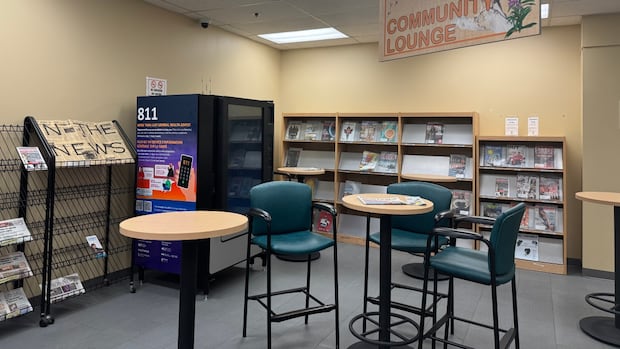The government of the Northwest Territories is introducing a different type of vending machine to communities in the territory. They are called health boxes and provide the public with health supplies for free.
HIV self-test kits, condoms, pregnancy tests, naloxone kits, toothbrushes and toothpaste are all items that can be found in these boxes, said Kami Kandola, the chief public health officer for the N.W.T. Like a vending machine, all the user needs to do is select the product they desire, and the item will be dispensed in a brown paper bag.
Since the machines are located in publicly accessible areas, the paper bag helps maintain the user’s privacy, explained Kandola. Everything remains anonymous since no ID is required to use the health boxes.
Health items are not the only thing these machines supply.
They also have information posted on them directing people to 811, a number that connects people to licensed registered nurses 24/7. And there is information on their screens about other services available to users.
In addition, the boxes provide information about the products in the machines, such as directions on how to use the items.
The machines are a response by the territorial government to public health concerns such as the syphilis outbreak declared in 2019, drug poisonings and barriers to accessing reproductive health supplies, Kandola said.
“When we’re looking at these struggles our communities are experiencing,” she said. “We felt that having a vending machine that could provide free and private access to essential health and wellness resources…would be a great step forward to connecting the dots.”
Two machines currently operating; more to come
Before the machines were installed, public health worked with communities and Indigenous organizations to determine the best location for the boxes and the type of products communities needed the most, Kandola explained. This means a machine in one community could carry different products than a machine located in another area.
Sean Rourke, a clinical neuropsychologist and the director of Reach Nexus, the organization that created the health boxes, said the machines help reduce stigma around accessing health products.
“We’ve really designed them to say, listen, these are things that you need to take care of yourself. We’re going to get them to you,” Rourke said. “They can take whatever they need. It’s all free.”
Two health boxes are currently up and running in the N.W.T.: one in Behchokǫ̀’s Sportsplex and the other in the Hay River Community Centre.
The Inuvik airport, the Midnight Sun Complex and the Yellowknife Public Library will have working machines in the upcoming weeks.
A second health vending machine will be installed in Yellowknife, Kandola said, but a location hasn’t been determined yet.
The government of the Northwest Territories is also planning to place more machines in another two or three regions in the territory.
The machines are part of a three-year project. If they prove to be popular, public health may replace the health boxes with more cost-effective models, like regular vending machines stocked with similar supplies, Kandola said.







